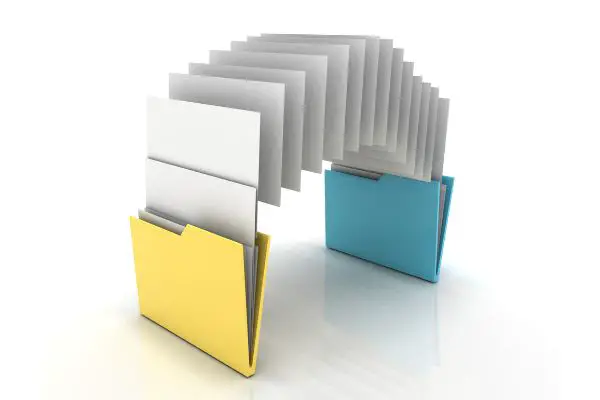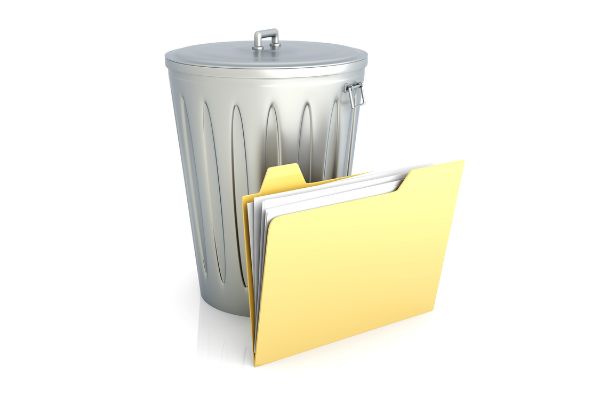Disclaimer: This post may contain affiliate links, meaning we get a small commission if you make a purchase through our links, at no cost to you. For more information, please visit our Disclaimer Page.
Computers store massive amounts of data in one place. From traditional desktops to smartphones, they all have ample storage space to keep different file types you can access anytime.
Although file extensions can depend on what kinds of media we are dealing with, we can store all data on our systems. Furthermore, we can also move or copy files thanks to modern technology. There’s one downside to it, though. We end up with duplicate files of the same media in one or more locations on the system’s drive. Duplicate files have their uses but also take up valuable storage space. We will tackle this problem in today’s post.
Further, we will try to determine what kinds of files a computer considers duplicates. We will also talk about how copying files works within the system. Finally, as part of the troubleshooting, we will also discuss ways to clean out duplicate files. We will review any risks your system might associate with getting rid of such files.
Table of Contents
What Files Does a Computer Consider To Be Duplicates?
For the most part, a computer stores a duplicate of nearly any file or extension type. It considers almost any data on your system suitable for duplication, but there are some exceptions.
First, specific system files cannot have duplicates in the exact location. They also cannot run on the same device. In some cases, such files may cause conflicts with each other and impacts a computer’s performance negatively. However, the majority of files you might store on your disk drive are ones that a computer can duplicate easily.
It is a short and accurate description of a duplicate file, but most computers will use specific algorithms or benchmarks to determine their file copying processes. An identical file is an exact copy of the original at the most basic level. If so, we must determine how a computer decides its duplication processes. There are different ways to do this as a user, but a computer can compare each byte of data to see if the contents of the files are the same.
If you are copying files, it is simple enough to tell the computer to make an exact duplicate of one piece of media. However, you might want to know which files on a system are duplicates, particularly if you do not remember copying them. In this scenario, you could run a command to look for differences in the specified files.
If it finds any, your computer will alert you. In addition, some applications can look at files the system might think of as duplicates. Some of these programs can perform a quick superficial check. However, they do not guarantee that the file they find is an actual duplicate. Others will go deep enough to verify that each byte of one file is a duplicate of another.
Does Copying a File Change It?
When you decide to copy a file, you tell the computer to duplicate it. Unless the system has some glitch, there won’t be any changes to the original file. The duplicate keeps all of the same information that each byte of data in the original had. You may see a different creation or modification date on the file you copied, but this is because the system treats it as a second file with the same data.
Does Copying Files Take Storage?
Yes, copying a file will take up space in your system’s storage. However, it should not take up more space than the original. Instead, it should occupy the same amount of space. So when you copy a file, your free space decreases by the same amount as the original file’s size. That’s because the new file is a new media piece and needs the same storage space.
However, there may be cases where you can’t copy a file due to space requirements. It might be true even with enough storage space on the system. When this happens, it may be due to a couple of errors that we can try to troubleshoot here.
File Systems
Some standard file systems decide how a particular computer might write and store its data. FAT32 and NTFS are two of the most common ones. In any case, some systems have limitations on the size of a single file they copy or store. When you come up against this, the computer will not copy the file because it is too large by itself. It happens even if you have ample storage space.
If this is the case for you, try switching to a drive format with fewer limitations. Note that it may not be possible with every system. If your system allows it, create a backup of all the data you store on the drive.
Changing the type of drive usually means you must reformat it entirely. This process erases the information in the industry, making creating a backup a crucial step here. With fewer limitations on individual file sizes, you may be able to move or copy the files you want to save in more than one location.
Byte Reporting
Because computers copy each bit of data when making duplicates, they go through all of this data individually. And the system looks at these data bits differently depending on the files you are trying to copy.
The format of your source drive can also have some impact on this.
When a computer copies one file to any location, it will look at and report the total byte size of the data it copies.
Drives have sectors that store information. Although a single byte is a minimal amount of data, there are scenarios in which one byte will use a whole industry. When this happens, you want to duplicate many small files at once.
In these cases, the bytes in the small files can take up drive sectors many times the size you need to store the files. It is one of how copying files can take up more than double the original file size. In addition, it can make it difficult to move some data to a drive that should have more than enough space for the job.
Why Are There So Many Duplicate Files on My Computer?
Even if you do not decide to copy particular files, your computer may still do so on some data. There are a few reasons the system might do this, and our list below represents some of the most common ones.
- Some apps on your computer copy some of their files to run efficiently.
- The operating system might make duplicates of some of its files.
- If you restore your computer using a backup you created earlier, the process may leave duplicate files on your machine.
How Do I Quickly Delete Duplicate Files on My Computer?
If you have many duplicates on your system, you have several steps to get rid of them quickly. First, multiple third-party apps can scan your system to determine and suggest duplicate files for deletion.
You can also search the drives to see if files with the same names come up in different locations. Usually, you’ll do this by letting File Explorer use indexing to find similar files. You can also use PowerShell or Command Prompt to do these tasks. Once many files come up, you can select all of them for deletion.
Is It Safe To Delete Duplicate Files?
It should be safe to delete files you have copied. They might include videos, photos, or documents you chose to copy. However, we do not advise that you delete duplicates of any operating system files or user files on your primary disk drive. Your computer probably needs all of these files to run proficiently.
Conclusion
Duplicate files can be handy things to have in the interest of data backups. Sometimes, your system must create a duplicate to do its job. However, having multiple copies of large files, you don’t need will also take up space. You can use some tips to locate and remove such files from your system.


